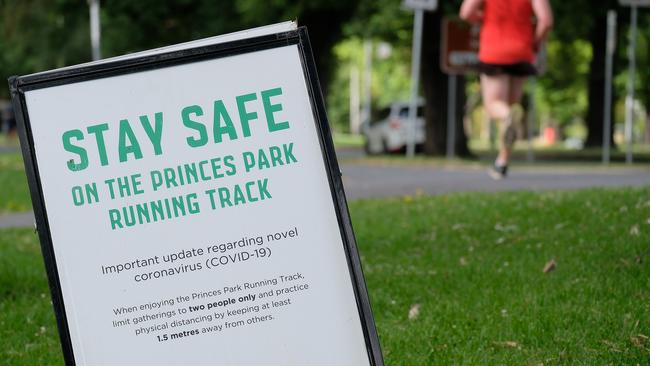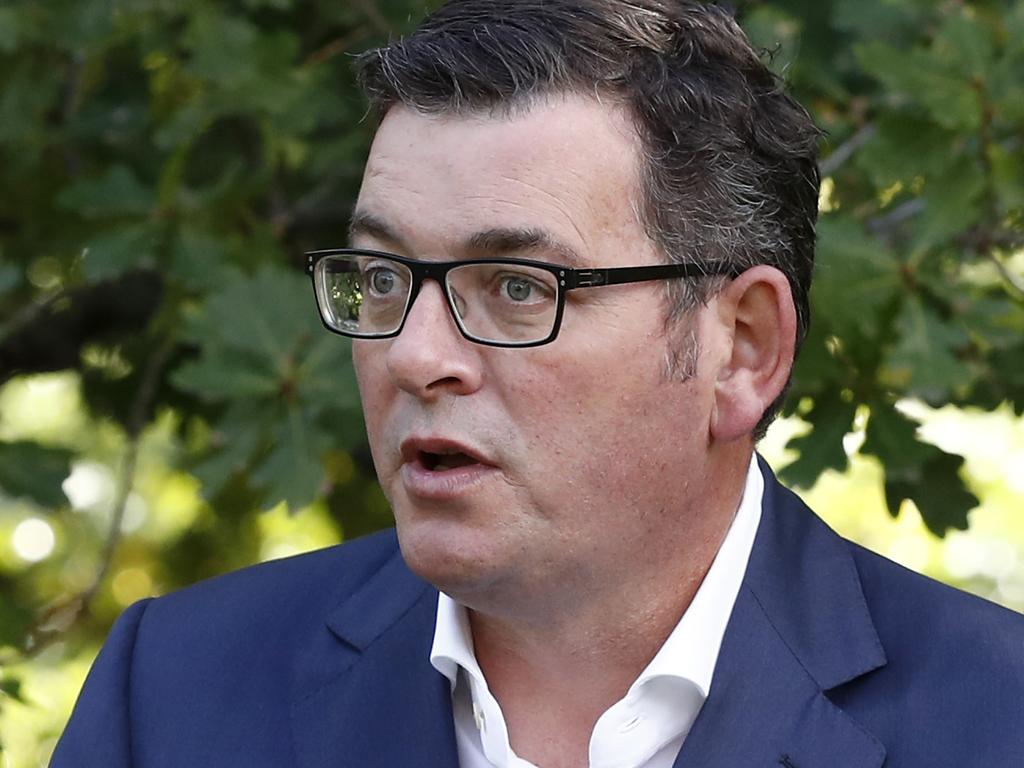
Propelled onto centre stage, obscure officials suddenly acquired a notoriety rivalling that of ex-royals. With the nation hanging in suspense, their daily reading of the tea leaves received the weight antiquity reserved for the oracle at Delphi, determining whether we could go to work, eat out or travel. And as they lurched between shutting states down and opening them again, most of us, who a year ago could scarcely pronounce “epidemiologist” (much less spell it correctly), quietly accepted their verdict, getting on with life and trusting that governments would do their best.
No doubt, circumstances partly shaped that response. COVID-19 is potentially lethal and relatively contagious; particularly when it first appeared, there were good reasons to fear the threats it posed.
But while it would be wrong to dismiss the public response as irrational, it is clear its extent takes some explaining. Two inter-related trends seem to be at work.
There is, to begin with, a long-term rise in society’s aversion to risk that is apparent not just in social behaviour but in the very words we use. In effect, “security”, as it evolved from the Latin, originally referred not to the absence of risk but to its stoical acceptance as an inescapable aspect of the human condition. In a usage that remained current in most European languages until less than a century ago, to be secure was primarily to be serene: to have the peace of mind needed to face life’s contingencies and ultimate finitude.
Instead, in today’s world, the quest for security involves the demand to eliminate uncertainty, or at least reduce it to the point where the anxieties it causes hardly intrude — and in particular, where death, “the rude touch of the Terrible Surprise” as Philip Roth called it, is cauterised from everyday existence.
At the same time, assuring security became a task not merely for governments but for “experts” — a category that barely existed before the 19th century — and nowhere more so than in health. As enormous strides were made in medicine, health itself was redefined from referring mainly to a subjective condition — the feeling of being well — to an objective state verifiable only through tests carried out by professionals. And with the rise of “public health”, what had been largely an individual concern acquired an ever more pronounced social dimension, embodied in a sprawling network of institutions and regulations. That those trends helped bring improvements earlier ages would have found miraculous is obvious. But it is also obvious that the emphasis on rational, scientific expertise as a basis for legitimate authority had profound implications for social attitudes.
After all, while we submit to power, we defer to authority, where “to defer” means to accord a strong presumption of validity to the statements of those who are regarded as “authorities”. In normal discussion, only the substance of the argument is relevant; in a relation of authority, whether what is said is intrinsically convincing has less bearing than the status of the speaker. Indeed, merely to question the substance of an “authoritative” pronouncement is to claim for oneself the standing that the entire construct of legitimate authority exists to deny.
Kierkegaard, looking back on traditional monarchy, expressed the point succinctly: “Simply asking whether the king is a genius, with the implication that in such a case he is to be obeyed, is already lèse-majesté, for the question casts doubt on his authority.”
And much as Kierkegaard intuited, the transition to contemporary democracy did not ascribe to elected governments — which soon proved fickle, fractious and fragile — the omniscience and omnibenevolence the doctrine of the divine right of kings had attributed to the sovereign; instead, it vested those virtues in science’s official oracles.
Given that transposition, and the desire for complete shelter from life’s perils, the public’s widespread acquiescence in the officials’ dictates should have been unsurprising — the deference reflected shifts long under way. However, that doesn’t make it less troubling, for it is an unfortunate fact that omniscience and omnibenevolence are as sadly lacking among commoners — even when they are highly trained — as they ever were among monarchs. John Stuart Mill’s quip that “some are wise and some are otherwise” applies as surely to public health officials as to anyone else; without effective accountability mechanisms in place, nothing can prevent errors and abuses.
Yet the separation the crisis highlighted between power, which remains the domain of elected governments, and legitimacy, which rests with the expert advisers, dramatically undermines accountability by allowing one to hide behind the other — as has happened repeatedly in all states, but most egregiously in Victoria. And with accountability crippled, deference can readily slide into the passivity that allows authority to morph into its degenerate twin, authoritarianism — an authority that holds itself above being questioned.
That authoritarianism need not be of the brutal Chinese variety. On the contrary, as Tocqueville warned nearly two centuries ago, its more likely form in democracies involves the rise of “an immense, tutelary power”, which by constantly seeming “regular, provident, and caring, keeps [its citizens] irrevocably fixed in childhood, softening their wills rather than breaking them, and thereby reducing the people to a herd of timid and industrious animals, of which the government is the loving shepherd”.
Perhaps that is the fate the pandemic foreshadows — the “Official Socialism”, which LT Hobhouse ridiculed in his vastly influential Liberalism (1911) as “a scheme for the organisation of life by the Superior Person”. This was, he said, a regime in which “the aristocracy of intellect which fills the civil service decides for each man how he should work, how he should live, and indeed, whether he has any business to be born”.
Good stuff, in theory, Hobhouse went on to add; but, while the “Superior Person’s way may be much wiser, it is not the ordinary man’s” — and the “ordinary man” is quite fond of making his own mistakes, rather than being told to make someone else’s.
One certainly hopes so; yet authority once gained is not readily relinquished. Moreover, comparing our experience, viewed as a whole, to that elsewhere, many Australians might draw the lesson that it hasn’t been as dreadful as all that. With the desire to be cradled from risk as potent as ever, those ships the Superior Persons were anxiously awaiting may indeed have finally arrived.








As COVID-19 hit these shores, the country’s medical bureaucrats must have felt like the members of a small and rapidly diminishing cargo cult when they finally glimpsed ships on the horizon.